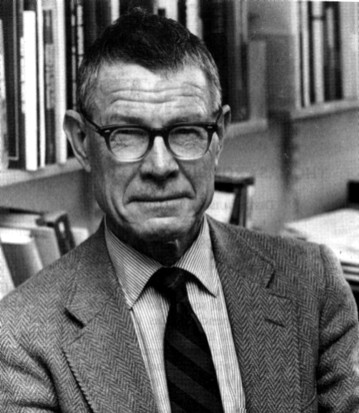| Profile | Major Works | Resources |
Thomas C. Schelling, 1921-2016


Innovative applied game theorist.
Originating from Oakland, California, Thomas C. Schelling obtained his BA from Berkeley and his Ph.D. from Harvard in 1951. After a period as an adviser at the White House and several government agencies, Schelling joined the faculty at Yale in 1953, an subsequently Harvard in 1958, where he remained until 1990. He has been a professor at the University of Maryland, College Park, since.
Schelling most influential work, developed during an interlude at RAND corporation in 1958-59, is his Strategy of Conflict (1960) applying game-theoretic concepts to the analysis of real world situations, building up to international relations and military strategy, often deriving unintuitive and surprising conclusions. His 1978 book is no less masterly, using game theory to show how aggregate behavior, mass phenomena and institutions can emerge from small, seemingly inconsequential changes in individual behavior. A famous example is the inadvertent emergence of racial segregation in cities where the population does not have deep racial prejudices. Although firmly attached to rational choice, Schelling has sometimes been classified as a behavioral economist.
Thomas Schelling won the Nobel Memorial Prize for Economics in 2005, with Robert Aumann, "for having enhanced our understanding of conflict and cooperation through game-theory analysis".
|
Major Works of Thomas C. Schelling
|
|
HET
|
|
Resources on Thomas Schelling
|
All rights reserved, Gonçalo L. Fonseca
